DEPCOM Power has always cared for its employees and communities. The utility-scale EPC and O&M company has largely weathered the coronavirus storm and continued to keep its focus on supporting its core team and 2,000 construction contractors.
In this episode of the Contractor’s Corner podcast, Solar Power World editor-in-chief Kelly Pickerel talks with Johnnie Taul, president of DEPCOM Power, about how the utility-scale contractor is pushing through COVID-19 related slowdowns.
A portion of the interview is below, but be sure to listen to the full podcast for even more insight, including more about permitting offices being more receptive to virtual and video-based applications; the company’s new restoration, repowering and recommissioning service offering; and its philanthropic efforts through DEPCOM G.I.V.E.S.
Find the Contractor’s Corner podcast on your favorite podcast app.
DEPCOM works in many states, so how has work been going during the coronavirus pandemic?
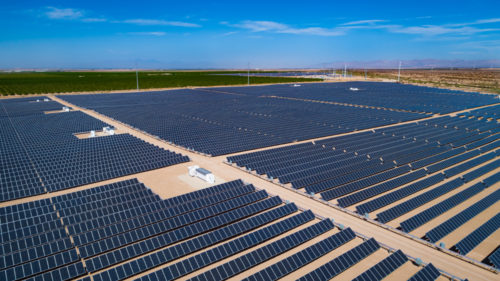 We’ve been successful in navigating the chaotic environment. The key is doing that safely, of course. Every state has unique restrictions and guidelines, logistical challenges, stay-at-home orders… but we’ve continued business under the umbrella of critical infrastructure and essential services designations. We’ve done things like issuing safe passage letters to our traveling teammates and certainly implementing many enhanced safety measures to keep the team safe during this time. Looking around at the effects of this, we’ve seen minimal attrition of labor force. It hasn’t been significant or unmanageable. One thing we do is hire veterans. As a core value, over 20% of our workforce is made up of our nation’s heroes, compared to the nation average which is around 6%. I think that’s one thing that helped us. Their work ethic and leadership is an inspiration to everyone else on the jobsites and in the offices, and that’s certainly a strong component of our success. We’ve also done some other things like issuing temporary wage increases and bonuses to our project field teams, not necessarily because it was necessary to retain the team but really just humble appreciation of the hard work that they’re putting into our projects during this tough time. We recognize that a lot of our team travels from project to project. Not only are they dealing with the stress of the situation going on around them, but they’re also remote from their families. So we’re very thankful for our team.
We’ve been successful in navigating the chaotic environment. The key is doing that safely, of course. Every state has unique restrictions and guidelines, logistical challenges, stay-at-home orders… but we’ve continued business under the umbrella of critical infrastructure and essential services designations. We’ve done things like issuing safe passage letters to our traveling teammates and certainly implementing many enhanced safety measures to keep the team safe during this time. Looking around at the effects of this, we’ve seen minimal attrition of labor force. It hasn’t been significant or unmanageable. One thing we do is hire veterans. As a core value, over 20% of our workforce is made up of our nation’s heroes, compared to the nation average which is around 6%. I think that’s one thing that helped us. Their work ethic and leadership is an inspiration to everyone else on the jobsites and in the offices, and that’s certainly a strong component of our success. We’ve also done some other things like issuing temporary wage increases and bonuses to our project field teams, not necessarily because it was necessary to retain the team but really just humble appreciation of the hard work that they’re putting into our projects during this tough time. We recognize that a lot of our team travels from project to project. Not only are they dealing with the stress of the situation going on around them, but they’re also remote from their families. So we’re very thankful for our team.
DEPCOM is committed to buying American-made products as often as you can. How have these domestic supply chains helped you through COVID-19 and other uncertainties?
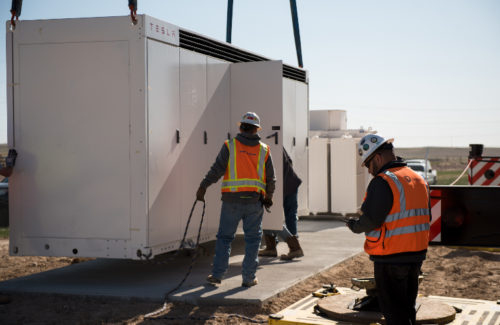 We direct nearly 80% of the dollars we spend domestically. That doesn’t happen by accident. We actively work with our suppliers and partners to shift supply chains to U.S. sources and work hard to ensure that we aren’t paying more for that. Around the COVID situation, we’ve really had minimal supply chain disruption during the pandemic, largely in part due to how limited the volume of imported materials and equipment are on our projects. The minimal disruptions we did see we were able to mitigate any actual impacts by simple project execution strategies of resequencing activities to accommodate shifted delivery schedules and things of that nature. I’m sure some of our suppliers at times may get a little frustrated with how relentless we are in this pursuit, but we believe it’s good risk mitigation and just important for our country to bring manufacturing back and all the U.S. jobs that come along with it.
We direct nearly 80% of the dollars we spend domestically. That doesn’t happen by accident. We actively work with our suppliers and partners to shift supply chains to U.S. sources and work hard to ensure that we aren’t paying more for that. Around the COVID situation, we’ve really had minimal supply chain disruption during the pandemic, largely in part due to how limited the volume of imported materials and equipment are on our projects. The minimal disruptions we did see we were able to mitigate any actual impacts by simple project execution strategies of resequencing activities to accommodate shifted delivery schedules and things of that nature. I’m sure some of our suppliers at times may get a little frustrated with how relentless we are in this pursuit, but we believe it’s good risk mitigation and just important for our country to bring manufacturing back and all the U.S. jobs that come along with it.
What are some of the challenges in utility-scale solar right now?
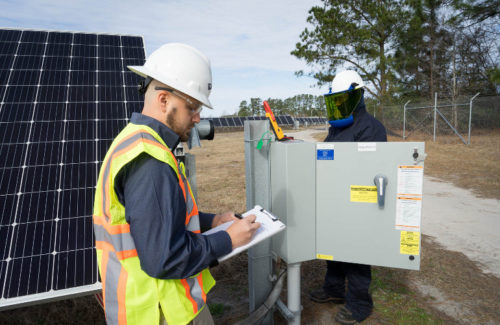 The long-term outlook is incredibly bright for the industry, but there are a couple of dynamics in the market that are presenting challenges. One would be international trade volatility. It can certainly be disruptive, whether it be the ever-changing tariff treatment on bifacial module technology or an outright import exclusion from adversarial countries. Equipment and materials make up the majority of the capital stack on a project, so the influence of these types of things can really move the needle. We are fairly resilient to some of those influences due to our domestic sourcing strategies, but it’s still a very important topic to stay on top of. The other thing I would mention would be specifically resulting from the COVID-19 pandemic — the general slowdown in debt financing and tax equity on near-term projects. Projects that were already in process are certainly moving forward, but the ones that were next in the queue seem to be taking a little bit longer. We’re working hard with our customers during this slow period on upcoming projects to move as much forward as possible in terms of engineering, permitting, pre-construction planning — the things that are fairly minimal capital expense, so that once the financing is secured, we’re off to the races.
The long-term outlook is incredibly bright for the industry, but there are a couple of dynamics in the market that are presenting challenges. One would be international trade volatility. It can certainly be disruptive, whether it be the ever-changing tariff treatment on bifacial module technology or an outright import exclusion from adversarial countries. Equipment and materials make up the majority of the capital stack on a project, so the influence of these types of things can really move the needle. We are fairly resilient to some of those influences due to our domestic sourcing strategies, but it’s still a very important topic to stay on top of. The other thing I would mention would be specifically resulting from the COVID-19 pandemic — the general slowdown in debt financing and tax equity on near-term projects. Projects that were already in process are certainly moving forward, but the ones that were next in the queue seem to be taking a little bit longer. We’re working hard with our customers during this slow period on upcoming projects to move as much forward as possible in terms of engineering, permitting, pre-construction planning — the things that are fairly minimal capital expense, so that once the financing is secured, we’re off to the races.
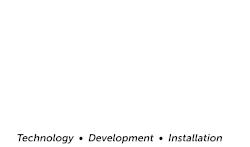
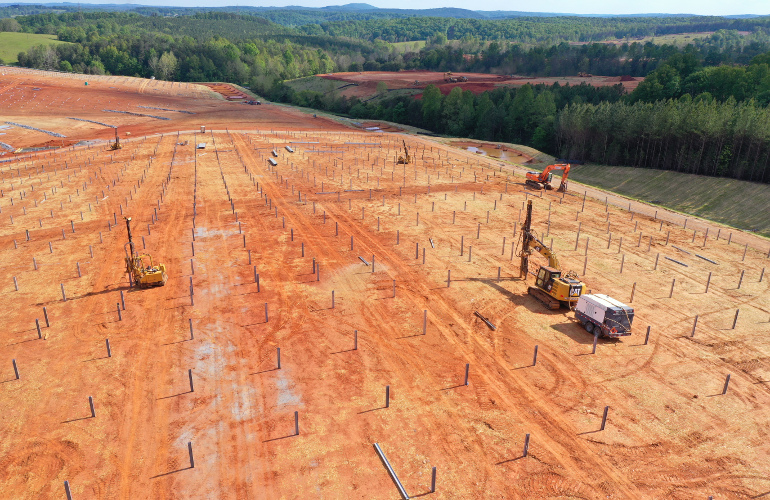
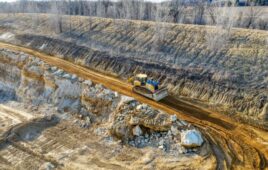
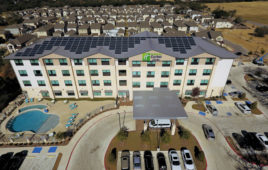
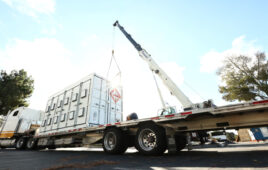
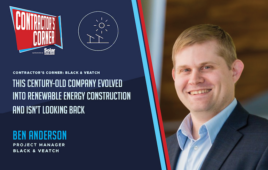
It’s nice to hear how utility scale companies are navigating through our current obstacles. As a small local business here in New Mexico it’s good to hear that clean energy continues to move forward especially during this challenging time we are facing. Great photos. Thanks for the story and podcast Kelly, can’t wait to hear more stories out there.
Jeremy Burnell
SunState Solar
Albuquerque, NM